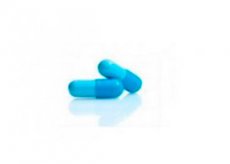Medical expert of the article
New publications
Preparations
Hepafitol
Last reviewed: 04.07.2025

All iLive content is medically reviewed or fact checked to ensure as much factual accuracy as possible.
We have strict sourcing guidelines and only link to reputable media sites, academic research institutions and, whenever possible, medically peer reviewed studies. Note that the numbers in parentheses ([1], [2], etc.) are clickable links to these studies.
If you feel that any of our content is inaccurate, out-of-date, or otherwise questionable, please select it and press Ctrl + Enter.

Gepafitol is a herbal medicine. It is used for pathologies that occur in the gallbladder or liver. It is prescribed for biliary diseases.
The medicinal activity is due to the effects of a complex of biological elements contained in artichoke leaves. It has hepatoprotective, choleretic and diuretic properties, and also reduces blood urea levels. The components of artichoke extract stabilize metabolic processes.
The drug helps remove toxins from the body (including alkaloids, nitro compounds and heavy metal salts).
Indications Hepafitol
It is used for the treatment of liver cirrhosis, chronic hepatitis, dyskinesia affecting the biliary tract (hypokinetic form), non-calculous chronic cholecystitis, chronic renal failure and nephritis in the chronic phase.
Use Hepafitol during pregnancy
Due to the lack of clinical data, Hepafitol is not used during breastfeeding or pregnancy.
Contraindications
Main contraindications:
- severe intolerance associated with artichoke and other plants from the Asteraceae subgroup or with other components of the drug;
- liver diseases in which severe liver dysfunction is observed;
- ZhKK;
- bile duct obstruction;
- hepatitis in the active phase.
Application for children
There is no information regarding the safety and therapeutic efficacy of the drug when used in children under 12 years of age, which is why it is not prescribed to this group.
 [ 23 ], [ 24 ], [ 25 ], [ 26 ], [ 27 ], [ 28 ]
[ 23 ], [ 24 ], [ 25 ], [ 26 ], [ 27 ], [ 28 ]
Analogues
Analogues of the drug are Bilikur, Gerbion, Artichoke extract, Cynarix with Hepatsinar, as well as Flamin and Hofitol.
Attention!
To simplify the perception of information, this instruction for use of the drug "Hepafitol" translated and presented in a special form on the basis of the official instructions for medical use of the drug. Before use read the annotation that came directly to medicines.
Description provided for informational purposes and is not a guide to self-healing. The need for this drug, the purpose of the treatment regimen, methods and dose of the drug is determined solely by the attending physician. Self-medication is dangerous for your health.

